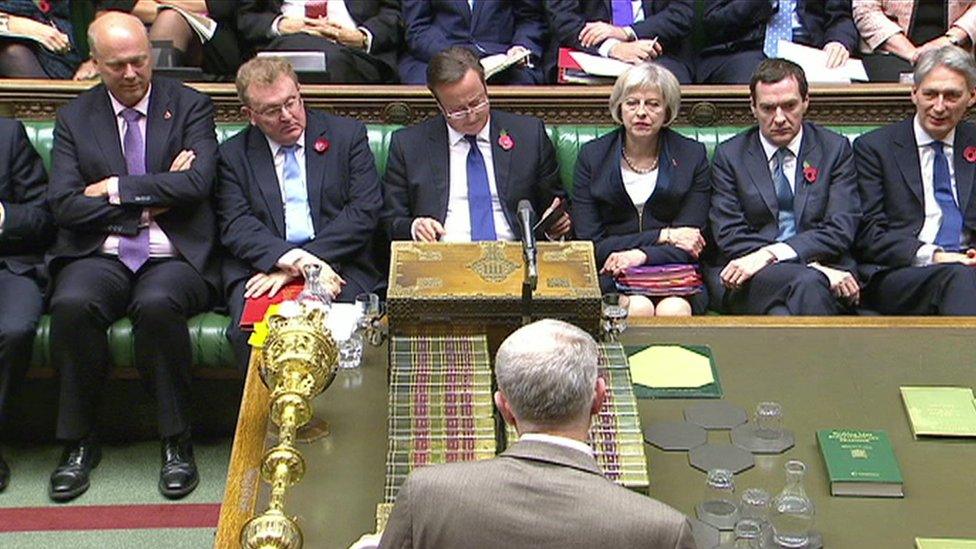Why is David Cameron so confident at PMQs?
- Published
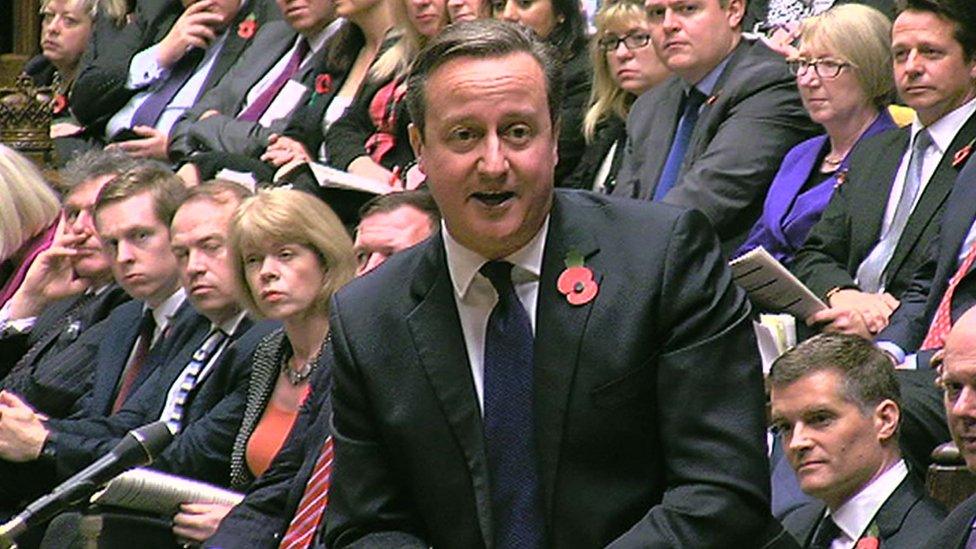
Harold Macmillan used to vomit after facing the Commons. Pitt the Younger used to fortify himself with a (whole) bottle of port. Tony Blair found the ordeal nerve-wracking. So why does David Cameron seem so supremely confident, even blase, at Prime Minister's Questions, these days?
Answer: the prime minister does not think he has much to fear from Labour leader Jeremy Corbyn.
He does not consult his folder of briefings, and he cruises PMQs almost on autopilot, with a few quips and a couple of canned policy answers.
Which is why the weekly joust has been steadily drifting down the running orders of news programmes, and why it is even possible that a Wednesday may soon arrive when it does not make the news at all, for sheer lack of drama.
Drawing blood?
At the moment, the two principals at PMQs are still sizing each other up. Jeremy Corbyn's approach of relaying questions on bread and butter issues has changed the dynamic. It is hard for Tory MPs to hoot or jeer the concerns of ordinary voters and when they do, it is not a good look.
But despite 32 years in Parliament, Mr Corbyn does not seem to have the debating skill to really press a point, or the subtler arts needed to foment dissent on the other side's benches (and remember the government is in trouble on the issue of tax credits because Tory MPs are unhappy) - which is surely an essential skill when facing a government with a thin majority.
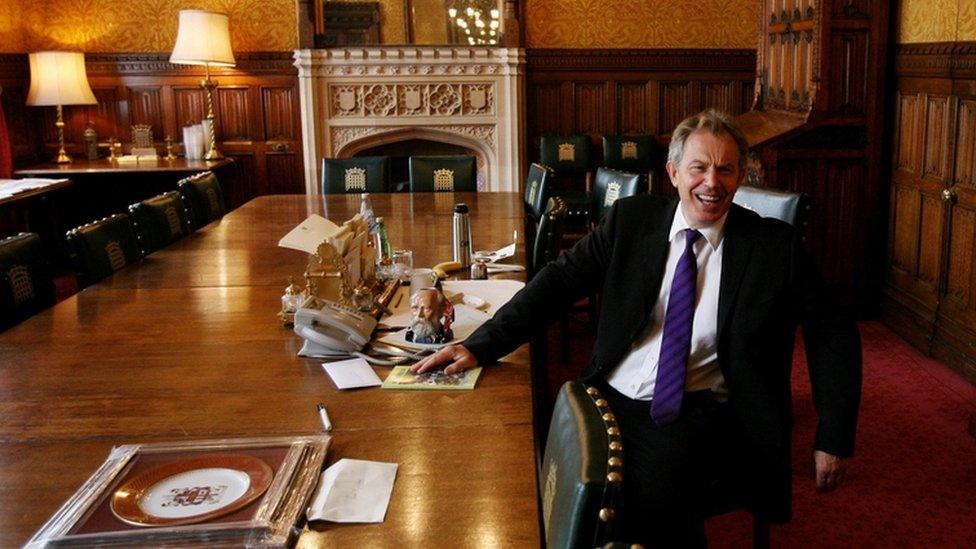
Relief? Tony Blair relaxes in his Commons office after taking his last PMQs
To be sure, Mr Corbyn's approach does keep the focus on more voter-friendly issues, but it seldom draws blood because his repetitive questioning rarely pushes the prime minister beyond a rote response.
This week David Cameron did make a misstep when he launched a riposte about the Marxist credentials of some newly appointed Corbyn advisers.
His "top Marx" punch line drew dutiful laughter from those of his troops who registered the pun, but it seemed to me a tactical error to get in to Westminster minutiae when questioned about cutting the income of poor people.
The Labour leader's biggest problems are behind him. In place, not time.
Some Labour MPs are not even turning up to PMQs, and most of those who do sit behind their leader are pretty po-faced.
At no stage is Mr Corbyn buoyed by the kind of tribal cheering that Tony Blair, Gordon Brown or even Ed Miliband could take for granted, which, again, means the atmosphere is flatter.
Perhaps that is not apparent to TV viewers, and maybe they do not much like the wall of sound that used to characterise PMQs, but there is a genuine problem for Mr Corbyn when his parliamentary party is so visibly unconvinced.
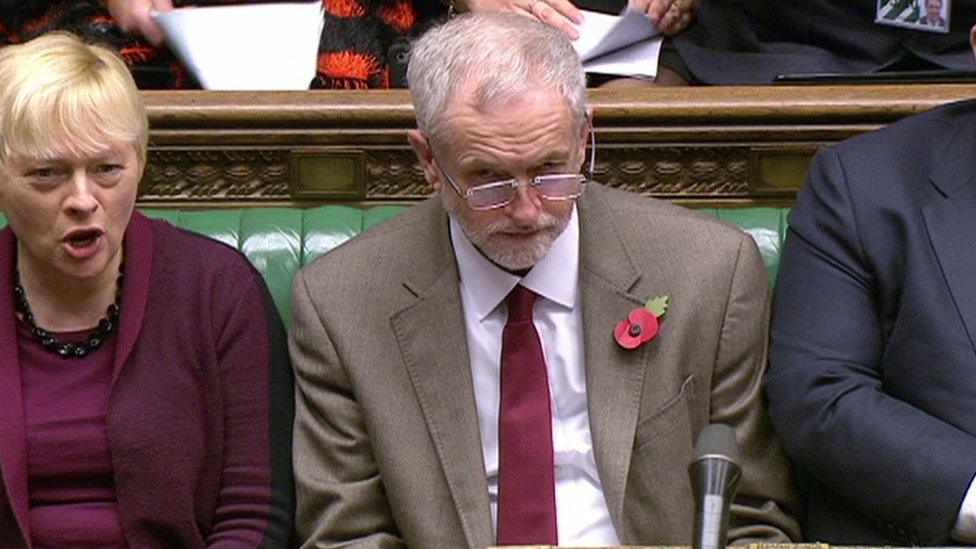
Another new factor in the game is the private war between the SNP and Labour.
The SNP delights in outflanking Mr Corbyn on issues, such as Trident, that are bitterly divisive among Labour MPs.
And it can play to the Scottish section of the TV audience, while Mr Corbyn has to beware of English and Welsh sensibilities.
The Conservative approach is still evolving; the cheers for the Labour Leader, as he takes his seat, are mocking ones from the Tory benches.
And this week, Tory MPs appeared to be trying to goad him into a flash of temper.
But, so far, there is nowhere near the level of barracking faced by earlier Opposition leaders - and rather as Tony Blair went soft on Iain Duncan Smith, there may be tactical reasons for that.
PMQ tactics
Having routinely flattened IDS at PMQs week in, week out, Mr Blair realised he was destabilising a Conservative leader he would have preferred to have faced in an election. Suddenly, the answers were less withering and the backbench barracking less intense.
David Cameron may be pulling his punches, for similar reasons - but watching him, I sometimes sense he is fighting the instinct to lash out.
He may only unleash it if and when it is too late for Labour to change leaders - so watch out for fireworks if Mr Corbyn makes it to 2020.
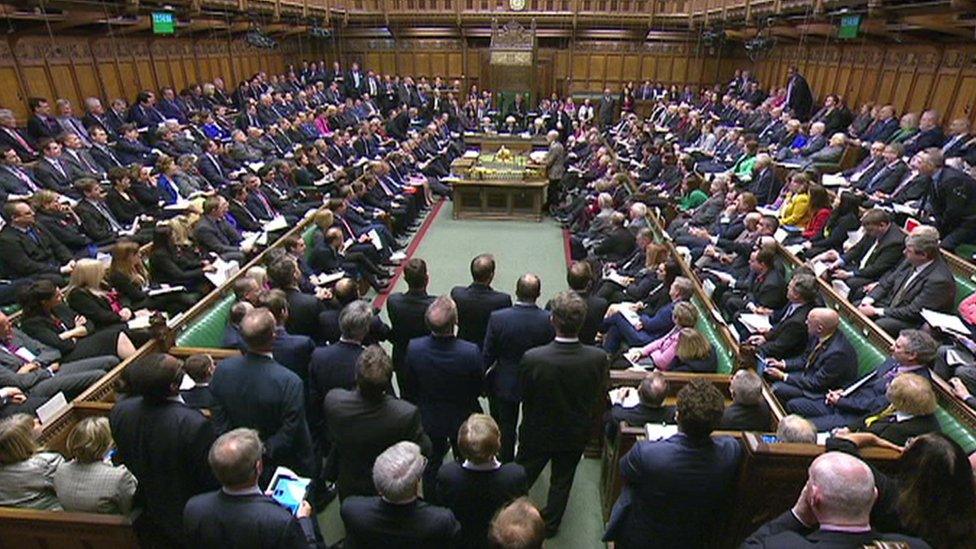
The weekly leaders' duel attracts the biggest audience in the Commons
PMQs is a double tactical game. For the party leaders, it is a chance to rally the troops in the chamber, to appeal to watching voters, and maybe to get their views out to a still larger audience in clips that make it on to news programmes.
Sometimes those objectives conflict. A mocking lash at some party hate figure can delight the parliamentary audience, but disgust the outside world. A sound bite that works on a TV news bulletin can fall flat in the chamber.
William Hague is an example of a master of Commons debate whose debating successes - at least as Conservative party leader - did not play well outside.
Jeremy Corbyn's focus seems much more on the audience outside, although he does have a habit of slipping on to the front bench during debates, and listening quietly for a while.
That is not without its dangers. Labour risks flopping in Parliament if the leadership is too focused on extra-parliamentary action. And there is always a possibility that some of the heavyweight former ministers on the backbenches might consciously seek to upstage their leadership, the better to displace it a bit later on.
- Published4 November 2015
